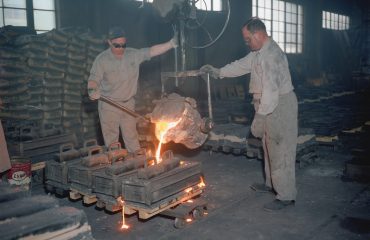The steel industry, a cornerstone of global infrastructure, is undergoing a digital transformation. Efficiency, transparency, and streamlined processes are paramount, and a key player in this evolution is the rise of steel B2B matching platforms. These platforms are revolutionizing how buyers and sellers connect, negotiate, and transact, leading to significant cost savings and improved supply chain management. This comprehensive guide delves into the world of steel B2B matching platforms, exploring their functionalities, benefits, and the impact they’re having on the industry.
1. Streamlining Steel Procurement: How Matching Platforms Work
Steel procurement can be a complex and time-consuming process. Traditional methods often involve lengthy searches for suitable suppliers, laborious price negotiations, and challenges in ensuring quality and timely delivery. Steel B2B matching platforms simplify this process by creating a centralized marketplace where buyers and sellers can connect directly. These platforms typically utilize sophisticated algorithms to match buyers’ specific requirements – including grade, quantity, dimensions, and delivery location – with the capabilities of registered suppliers. This automated matching significantly reduces search time and ensures a higher probability of finding a suitable match.
Many platforms offer advanced features like real-time inventory tracking, allowing buyers to see available stock and estimated delivery times. This transparency fosters trust and improves decision-making. Furthermore, integrated communication tools facilitate direct contact between buyers and sellers, streamlining negotiations and contract management. The entire process, from initial search to final order placement, is often significantly faster and more efficient than traditional methods.
2. Boosting Efficiency and Reducing Costs: The Benefits for Buyers
For steel buyers, the benefits of using B2B matching platforms are substantial. The most immediate advantage is the significant time savings achieved through automated matching and streamlined communication. This allows procurement teams to focus on strategic initiatives rather than getting bogged down in the minutiae of sourcing. Moreover, increased competition among suppliers on the platform often leads to more competitive pricing, resulting in considerable cost reductions.
Improved transparency also plays a crucial role. Buyers have access to real-time data on supplier capabilities, inventory levels, and delivery schedules, enabling them to make informed decisions and minimize supply chain disruptions. The ability to compare multiple suppliers side-by-side facilitates better price negotiation and ensures they are getting the best possible deal. Ultimately, these platforms help buyers optimize their procurement processes, reduce costs, and ensure a reliable supply of steel.
3. Expanding Market Reach and Enhancing Visibility: Benefits for Suppliers
Steel suppliers also benefit significantly from utilizing B2B matching platforms. These platforms provide unparalleled opportunities to expand their market reach and connect with a wider range of potential buyers, both domestically and internationally. Unlike traditional methods that rely heavily on networking and direct sales, platforms offer a broader exposure to a large pool of pre-qualified buyers actively seeking steel products.
Increased visibility translates to more sales opportunities and improved revenue streams. The platforms’ sophisticated matching algorithms ensure that suppliers are connected with buyers whose requirements align perfectly with their capabilities. This targeted approach minimizes wasted effort and maximizes the chances of converting leads into sales. Furthermore, platforms often provide valuable data and analytics on market trends, allowing suppliers to better understand customer demand and adjust their production strategies accordingly.
4. Enhancing Transparency and Building Trust: The Role of Data and Security
Trust and transparency are fundamental to successful B2B transactions. Steel B2B matching platforms play a vital role in fostering this trust by providing a secure and transparent environment. Platforms often incorporate robust verification processes to ensure the legitimacy of both buyers and suppliers. This includes verifying business credentials, assessing financial stability, and confirming the quality of offered products.
Data security is another critical aspect. Platforms employ advanced security measures to protect sensitive information, such as pricing details, contract terms, and customer data. This ensures a secure transaction environment and protects the interests of all parties involved. The transparency offered by real-time data on inventory, delivery schedules, and pricing helps build trust and reduces the risk of disputes or misunderstandings.
5. The Future of Steel B2B Matching Platforms: Integration and Innovation
The future of steel B2B matching platforms is bright, with ongoing innovation and integration shaping the industry landscape. We can expect to see increased integration with other supply chain management systems, such as ERP and CRM software. This seamless integration will further streamline processes and improve data flow across the entire value chain. Artificial intelligence (AI) and machine learning (ML) will play an increasingly important role in enhancing the platform’s matching algorithms, predictive analytics, and fraud detection capabilities.
Furthermore, the adoption of blockchain technology could revolutionize traceability and transparency within the steel supply chain. Blockchain can provide immutable records of transactions, ensuring greater accountability and reducing the risk of counterfeit materials. The continued development and adoption of these technologies will further optimize efficiency, enhance trust, and drive innovation within the steel industry, making B2B matching platforms an indispensable tool for both buyers and sellers.
Tags: Steel B2B, Steel Procurement, Steel Supply Chain, B2B Matching Platforms, Steel Industry Technology




